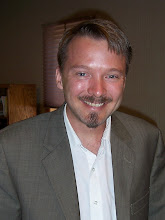Religious leaders join hands to take on worldwide woes
By K. Connie Kang, Los Angeles Times Staff Writer February 2, 2008
Christians, Jews and a Muslim from the Los Angeles area who went on a study trip to Rome, the Vatican and Jerusalem say they have to work together to fight hunger, disease and violence.
Religious leaders should lead the way in solving the world's persistent problems, such as hunger, disease and violence, by reaching out to -- and working with -- people of other faiths, Los Angeles area Christian, Muslim and Jewish leaders say."It is increasingly clear to some of us that the world's problems can't be solved simply politically," said the Rev. Jerry Campbell, president of Claremont School of Theology, after returning this week from a nine-day study trip to Rome, the Vatican and Jerusalem. Campbell traveled as a member of the Los Angeles Council of Religious Leaders, and the trip was designed to promote understanding and appreciation of the complexity of the Middle East. It was the second such trip for the council and was co-sponsored by the Roman Catholic Archdiocese of Los Angeles and the Board of Rabbis of Southern California."It's not about converting or changing one another," Campbell said. "It's about a dialogue -- conversation and common efforts on the problems we all agree are shameful."
Campbell expressed the hope that Los Angeles -- a microcosm of global diversity -- would become a "model city for the world," where people of faith would serve humanity with "love and respect" for each other's viewpoints .He and several members of the delegation -- priests, rabbis, pastors and lay leaders -- said meetings with an array of experts working on peace, interreligious issues and the mission of the religious institutions had renewed their hope. But the discussions have also reminded them of the challenge of handling those within their faith traditions who oppose interreligious collaboration, they said.
"Sometimes there is more conflict and difficulty living with each other within your religious group than . . . relating to each other in the other religious groups," said Pasadena-based Bishop Mary Ann Swenson, who oversees 390 United Methodist congregations in Southern California, Hawaii, Guam and Saipan.The bishop noted with joy how naturally the diverse group of Catholics, Protestants, Jews and a Muslim became a community. "It was very, very special," she said.Nur Amersi, the lone Muslim in the delegation, said the group's effort is an example of what is possible. "We became a family," said Amersi, executive director of the Afghanistan World Foundation's Los Angeles office. A highlight in the Vatican was the papal audience, described as "part prayer service, part pep rally and part religious rock concert" by Rabbi Mark Diamond, executive vice president of the Board of Rabbis of Southern California, who was co-leader of the delegation with Bishop Edward Clark, of the Roman Catholic Archdiocese of Los Angeles.While thousands waited for 90 minutes to see Pope Benedict XVI, strangers greeted those around them, their "voices and laughter" filling the air, Campbell recalled.After the pontiff's homily on the "Week of Prayer for Christian Unity," special visitors, including the Los Angeles delegation, were recognized. Young people cheered, "nuns waved colorful scarves, the band played, and a couple from South America sang a hauntingly beautiful a cappella rendition of 'Ave Maria,' " Campbell said.
After blessing the gathered in six languages, the pope walked down from the stage to greet the leaders from Los Angeles. Campbell said he felt that the pope's message and welcome had affirmed the delegation's "interfaith agenda."Swenson said Benedict's homily connected with her because she had been praying the very verse that the pope quoted, "Pray without ceasing," from 1 Thessalonians.Amersi's encounter with the Vatican opened her to a deeper understanding, respect and acceptance of Christianity. Swenson described private sessions with officials in Rome and Jerusalem as "deep and intense." The group met with three cardinals, including Cardinal Jean Louis Tauran of the Pontifical Council for Inter-religious Dialogue.
In Israel, the delegation met with a cross-section of political, religious, social welfare and new media leaders."The trip reinforced for all of us the nuances and complexities of . . . age-old problems," Diamond said. "We all have a stronger grasp of some of the issues that we face." The Rt. Rev. Alexei Smith, of the Archdiocese of L.A., said interfaith leaders have their work cut out for them."This wonderful experience has to filter down to the man and woman in the pew -- and that means everyone -- most particularly those who are not in favor of this type of activity," he said.But how?"By our example they might be led to see that this is the way to do things," Smith said.
Howard's Sermons and Article Clippings.

Blog Archive
-
▼
2008
(75)
-
▼
February
(11)
- Darfur crisis worse,
- A gang's staying power
- State fails wrongly convicted prisoners
- Officer saw his work as a calling
- Unlimited space for untold sorrow
- Bush’s Empty Words on Two Troubled Nations
- Kenya Death Toll Surpasses 1,000
- Peace Agreements fails to halt Kenya Violence
- Ontario opens arms to homeless
- Religious leaders join hands to take on worldwide ...
- Random violence kills a man who saved lives
-
▼
February
(11)
About Me

- Howard
- Im a Mainline protestant minister who loves serving in multicultural and urban contexts. I'm very interested in how liberation theology and existential-humanistic psychology are applied to the praxis of pastoral care and counseling. My most profound encounters with God come as we sojourn as brothers and sisters seeking the inbreaking of God's reign, here and now.
Subscribe to:
Post Comments (Atom)









No comments:
Post a Comment